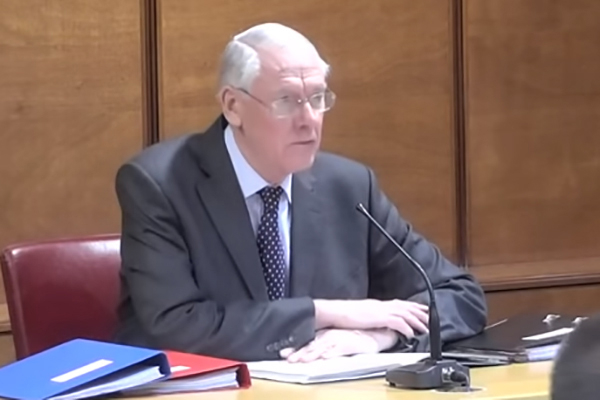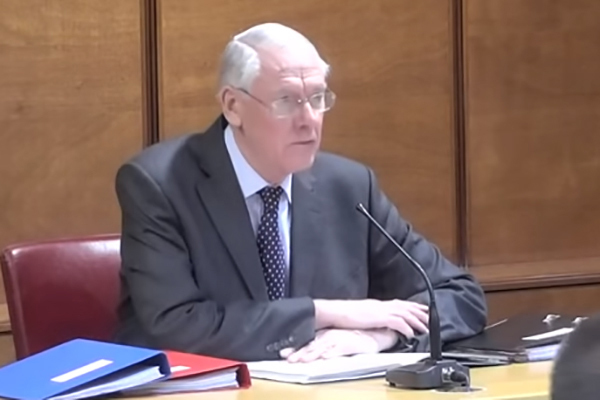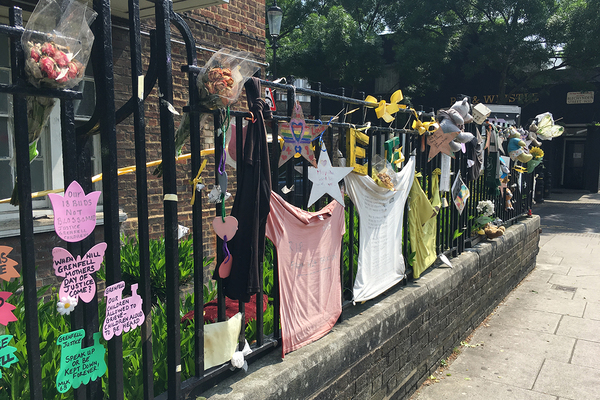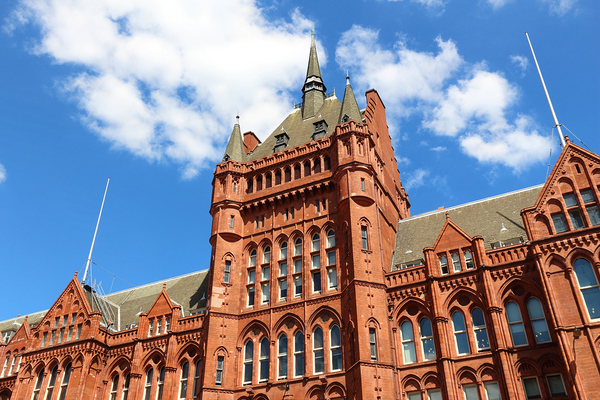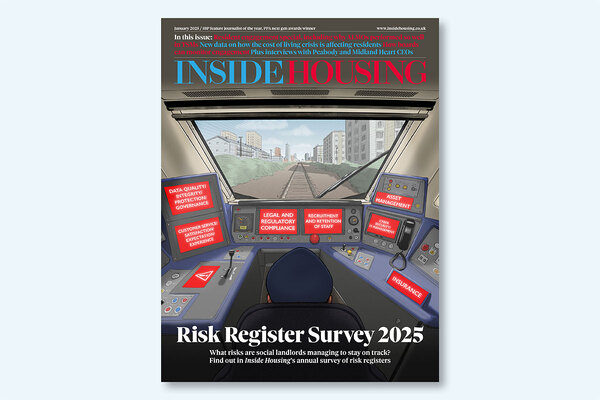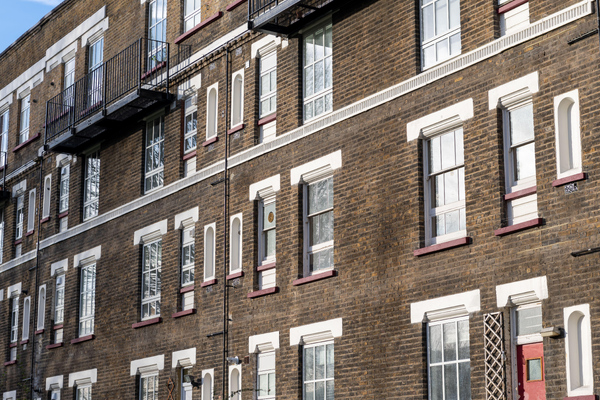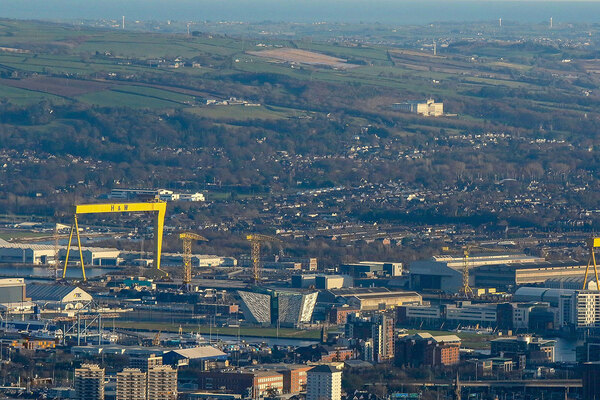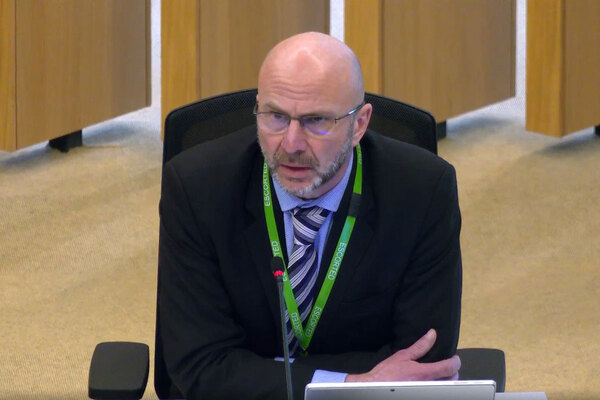You are viewing 1 of your 1 free articles
Grenfell Inquiry judge will limit recommendations despite expert advice, letter reveals
The judge leading the Grenfell Inquiry will not make recommendations on a range of fire safety issues in his long-awaited phase one report – despite his experts warning that they require “urgent and very far-reaching reform”.
In a letter seen by Inside Housing, Sir Martin Moore-Bick, the inquiry judge, also revealed that he will not be making any “urgent” recommendations ahead of the phase one report – which is now set to be delayed until the summer – despite calls from survivors for him to do so.
Sir Martin has been given the power to make any necessary recommendations for change to Theresa May to prevent a repeat of the Grenfell fire, which killed 72 people in June 2017.
He has instructed six of the inquiry’s experts to write reports on what these recommendations should conclude, as he prepares his report following the end of seven months of evidence about the blaze.
But in a letter to core participants last month, his solicitor Caroline Featherstone revealed he will limit any recommendations strictly to the evidence discussed in the first phase, which dealt almost exclusively with the night of the blaze.
The letter, sent on 5 April and seen by Inside Housing this week, said the expert reports “harbour very significant concerns which call out, [the experts’] believe, [a need] for urgent reform, and in some cases very far-reaching reform”.
But she added that any recommendations “need to be firmly rooted in the chairman’s analysis of the evidence”.
She wrote: “The fact that the chairman does not consider it appropriate to make any particular recommendation at this stage should not be taken as an indication that he does not regard the matter as important or that he will not make a recommendation in due course.”
Sir Martin declined to hold a public hearing to discuss this and the expert reports on recommendations have not yet been released by the inquiry.
This means it is not clear which issues the experts raised that will not be addressed in his report – although the letter did specifically reference “the adequacy of the current testing regime”.
The letter also reveals that “core participants” – understood to be some of the bereaved, survivors and relatives – called for the judge to make “urgent” recommendations ahead of publishing his report.
It said that he would have had the power to do so “if he had discovered something that in his view was so urgent that it called for immediate action in the interests of public safety”.
However, it added: “Although many useful suggestions have been made which may contribute to recommendations in the phase one report, the range and divergence of views expressed by those who have offered suggestions (as well as by the experts) have led [Sir Martin] to the conclusion that there are no steps whose implementation is of such immediate obviousness, urgency and importance that he should write to the prime minister with recommendations in advance of the phase one report.”
Inside Housing understands that the judge will not publish his phase one report before the two-year anniversary of the fire on 14 June.
Last month, the inquiry said it would need to undertake ‘Maxwellisation’, which gives those facing criticism the right to respond, before publication but did not give a timeline for publication.
The letter, which is reproduced in full below, added: “All those interested, whether they are commercial or public bodies, should note [the views of the experts] with care.
“The fact that in some instances the inquiry’s experts have expressed views on matters which will be investigated in phase two (such as the adequacy of the current testing regime) reflects both the width of their instructions, their honestly held views based on their expertise and experience.
“The fact that such concerns may be regarded as phase two matters on which the evidence is at present incomplete should not be taken as a reason for ignoring them.”
Phase two of the inquiry is not due to start until the end of the year and could last for up to two years.
Letter to core participants
Sent on 5 April
The purpose of this letter is to explain the approach the chairman intends to take in relation to urgent interim recommendations following consideration of the various submissions he has received from core participants, and the views of the inquiry’s experts who were asked to express their opinions about what recommendations could and should be made now.
As part of the inquiry’s terms of reference the prime minister has asked the chairman to make such recommendations as he considers appropriate in the light of the facts that are uncovered as a result of the inquiry’s investigations.
If recommendations are to carry weight with those to whom they are directed they must be clearly supported by the inquiry’s findings, which must in turn be clearly supported by the evidence.
The chairman’s findings will be set out in his report to the prime minister, together with a summary of the evidence on which they are based, so that those who read the report can understand the position clearly.
For that reason recommendations are normally set out in the report and linked to the findings.
That would not prevent the chairman from writing to the prime minister at an earlier stage, if he had discovered something that in his view was so urgent that it called for immediate action in the interests of public safety, but that would be unusual.
If a recommendation of that kind were to carry any weight, however, it would also have to be supported by a summary of the evidence and conclusions on which it was based.
At the procedural hearing on 3 September 2018 counsel for some of the core participants submitted that a number of steps were so urgently required in the interests of public safety, and were so obvious, that they should be the subject of interim recommendations in advance of the Phase 1 Report now being prepared.
In the light of those submissions the chairman agreed to allow core participants to suggest potential recommendations and a timetable for doing so was subsequently set.
At that stage the chairman envisaged that at some point it might be helpful to have a hearing to discuss the suggestions and responses to them and provision for that was also made, together with an opportunity for him to seek advice from the expert witnesses instructed by the inquiry.
Short reports from those experts from whom the chairman has sought advice have now been received and are being disclosed to core participants today.
The chairman has given careful consideration to the proposals put forward by core participants and to the statements from various institutional bodies about the steps they have taken in response to the fire.
He has also considered the advice he has received from the inquiry’s experts.
Although many useful suggestions have been made which may contribute to recommendations in the Phase 1 Report, the range and divergence of views expressed by those who have offered suggestions (as well as by the experts) have led the chairman to the conclusion that there are no steps whose implementation is of such immediate obviousness, urgency and importance that he should write to the prime minister with recommendations in advance of the Phase 1 Report.
The chairman is concerned to ensure that subjects of wide-ranging importance are fully and carefully considered in the context of the broader evidence to be heard at Phase 2, when the inquiry’s investigations will include some areas of interest that were touched on, but not fully explored, in Phase 1.
Until that has been done it is not possible to determine in relation to any particular area of investigation whether limited changes are called for or more radical reform is required.
The divergence of opinion between the core participants themselves and between some of the inquiry’s experts, is a strong indication that the question of recommendations is far from simple and needs to be firmly rooted in the chairman’s analysis of the evidence and his conclusions based on it.
The chairman intends to complete his Phase 1 Report and send it to the prime minister as soon as possible.
For the reasons set out earlier, the nature and scope of any recommendations made in that report will depend on his findings which must themselves be based on the evidence adduced at Phase 1.
However, in addition to making formal recommendations, the chairman also intends to consider whether he should draw attention in his report to areas of particular concern that call for immediate review by those responsible for them and, if necessary, further investigation in Phase 2 of the inquiry.
Indeed, the chairman would go further. It is clear from the opinions expressed by the inquiry’s experts in their various reports, including their reports on recommendations, that they harbour very significant concerns which call out, they believe, for urgent reform, and in some cases very far-reaching reform.
Those concerns arise now. All those interested, whether they are commercial or public bodies, should note them with care. The fact that the chairman does not consider it appropriate to make any particular recommendation at this stage should not be taken as an indication that he does not regard the matter as important or that he will not make a recommendation in due course.
The fact that in some instances the inquiry’s experts have expressed views on matters which will be investigated in Phase 2 (such as the adequacy of the current testing regime) reflects both the width of their instructions, their honestly held views based on their expertise and experience, and the fact that core participants themselves have raised concerns about matters that will be considered in Phase 2.
The fact that such concerns may be regarded as Phase 2 matters on which the evidence is at present incomplete should not be taken as a reason for ignoring them.
The chairman is grateful for all the proposals and suggestions put forward by core participants, all of which he will take into consideration when writing his Phase 1 Report.
However, in the light of the matters set out above he has come to the view that any recommendations that can be made at this stage ought to be made in that report.
In those circumstances, he does not think that at this stage an oral hearing to discuss recommendations would be of assistance.
The following documents will be available in the Core Participant Workspace on Relativity later today as Phase 1 Disclosure Tranche 106:
1. Letter of Instruction to Prof Luke Bisby
2. Letter of Instruction to Prof Edwin Galea
3. Letter of Instruction to Prof José Torero
4. Letter of Instruction to Dr Barbara Lane
5. Letter of Instruction to Colin Todd
6. Letter of Instruction to Steve Mc Guirk
7. Summary Table of Core Participants’ Submissions on Recommendations
8. Report of Prof Luke Bisby
9. Report of Prof Edwin Galea
10. Report of Prof José Torero
11. Report of Dr Barbara Lane
12. Report of Colin Todd
13. Report of Steve McGuirk.
Yours faithfully,
Caroline Featherstone
Solicitor to the Inquiry
The Grenfell Tower Inquiry
Closing statements
Day 85: victims' lawyers attack the fire brigade
Further expert evidence
Including some additional evidence from emergency call handlers, bereaved and relatives
Day 84: further evidence from survivors and relatives
Day 83: swift evacuation of tower possible if residents alerted
Day 82: initial fire was extinguished but then returned to the flat
Day 81: overheating fridge-freezer most likely cause of fire
Day 80: fire doors installed did not match product tested
Day 79: resident advised to stay put despite fire in flat
Day 78: insulation and cladding material below required standard
Day 77: molten plastic spread blaze down tower
Day 76: 'stay put' should be dropped when fire spreads across floors
Other witness evidence
Police, ambulance, gas suppliers, council, TMO and call room operators give evidence
Day 75: call room operators give evidence
Day 74: further evidence from TMO officers
Day 73: TMO boss failed to pass information to firefighters
Day 72: fire finally extinguished when gas switched off
Day 71: further questions over stay put advice
Day 70: the police evidence
The bereaved, survivors and relatives’ evidence
Day 69: video shows smoke billowing through fire door
Day 68: KCTMO removed self closing mechanism and never replaced it
Day 67: gaps in cladding fixed with duct tape
Day 66: 'don't fix broken system with a sticking plaster'
Day 65: survivor dragged disabled man down nine floors to safety
Day 64: KCTMO 'did not replace broken fire door'
Day 63: foam insulation inside cladding 'exposed' says survivor
Day 62: father gives harrowing account of son's death
Day 61: council’s management organisation slammed for faulty electrics
Day 60: stay put advice ‘led to deaths’, residents say
Day 59: residents describe problems with new windows
Day 58: survivor describes how daughter saved his life
Day 57: firefighter evidence ‘a slap in the face’, says survivor
Day 56: relations with contractor were ‘toxic’
Day 55: resident 'never happy' with stay-put advice
Day 54: tenant gives evidence about housing association
Day 53: stay put advice 'felt like trap'
Day 52: resident saved by son's phone call
The firefighters’ evidence
Day 51: firefighter feared encouraging residents to jump
Day 50: the LFB commissioner
Day 49: fire chief reveals frustration over lack of building plans
Day 48: internal fire spread 'bigger story' than cladding
Day 47: fire officer considered evacuating crews over building collapse fears
Day 46: 'we were improvising' senior firefighter admits
Day 45: firefighter urged for abandonment of 'stay put' policy
Day 44: firefighter recalls radio signal difficulties
Day 43: call hander 'uncomfortable' with insisting residents stay put
Day 42: residents only told to leave if they called fire brigade back
Day 41: breathing equipment delay 'hampered rescues on upper floors'
Day 40: chiefs told firefighters to abandon policy
Day 39: firefighters reveal dramatic rescue of children
Day 38: firefighters issue aplogies to families
Day 37: council 'unable to provide tower plans'
Day 36: QC defends inquiry process
Day 35: Javid would welcome interim recommendations
Day 34: water from hose 'too weak' to reach the flames
Day 33: 'oh my god, we've been telling people to stay put'
Day 32: further fire fighter describes lack of equipment and low water pressure
Day 31: 'incredibly difficult' task of recording information outlined
Day 30: struggle to maintain control over rescue operation described
Day 29: fire service 'overwhelmed' by survival guidance calls
Day 28: 'the building beat us'
Day 27: firefighters 'forced to abandon plans to reach roof'
Day 26: poor signage hindered rescue efforts
Day 25: water pressure left firefighting equipment 'like garden hose'
Day 24: decision to abandon 'stay put' explored
Day 23: TV images 'could have assissted' rescue effort
Day 22: description of hectic scenes in the control centre
Day 21: account from the fire service 'nerve centre'
Day 20: firefighter describes 'huge volume' of calls from trapped residents
Day 19: firefighter 'given no training on cladding fires'
Day 18: evacuation would have been 'huge catastrophe'
Day 17: firefighters describe access and lift issues
Day 16: scenes of carnage likened to 9/11
Day 15: firefighters recount trauma of survival guidance calls
Day 14: firefighters describe spread of blaze
Day 13: firefighters recall radio difficulties
Day 12: "it was like a war zone"
Day 11: questions raised over fire fighters' radios
Day 10: watch manager emotional under questioning
Day nine: lead firefighter 'not trained in stay put policy'
The expert reports: authors give evidence to inquiry
Day eight: where the fire started
Day seven: what was in the cladding?
Day six: the cause and spread of the fire
Day five: expert highlights key issues
Day four: firefighters defend response to fire
Day three: council and contractors appear for the first time
Day two: lawyers for the survivors make their case
Day one: expert evidence released on cladding and stay put
The commemoration hearings
30 May: Grenfell Council 'recognised it should not house disabled victim above four storeys'
29 May: Anger on day six of the Grenfell Inquiry
25 May: Grenfell families 'forced to live in chimney with stay put policy'
24 May: Grenfell family complained about father being housed on 17th floor
23 May: Tributes to children on third day of Grenfell hearings
22 May: Emotions run high as Grenfell bereaved shown footage of the tower burning
21 May: Grenfell victims share tributes as inquiry opens
